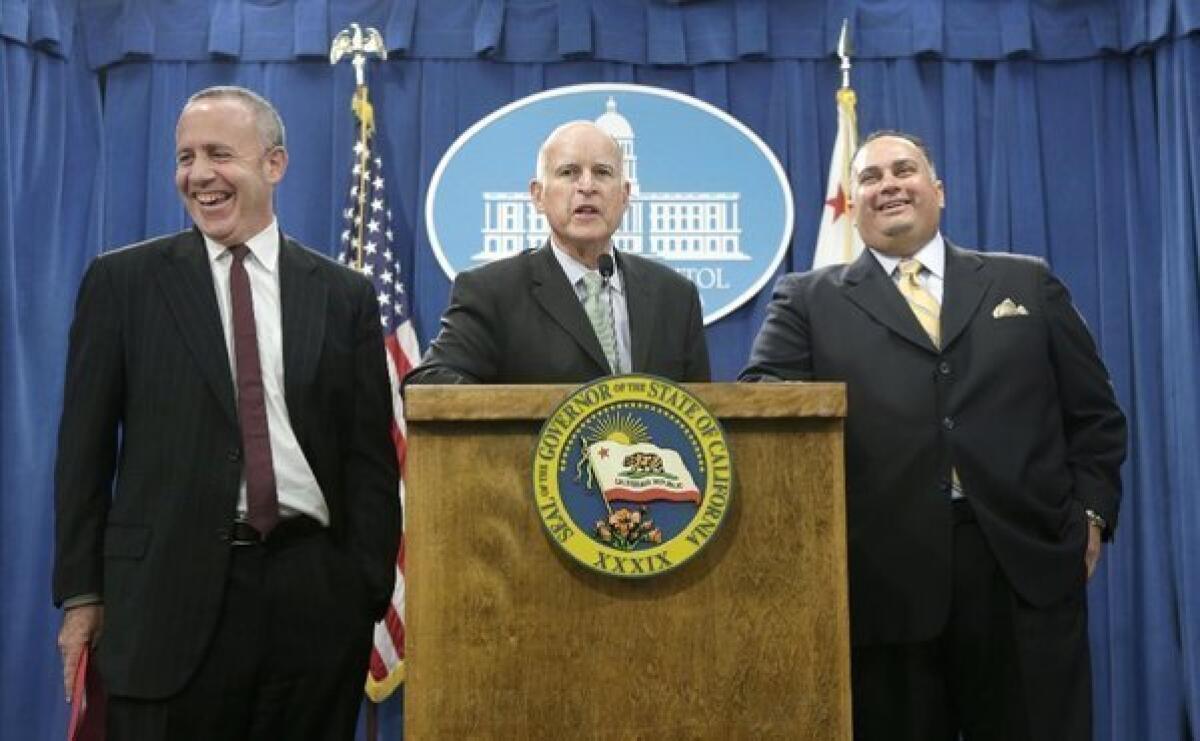Plan B to save the public’s right to records

- Share via
The Times editorializes Wednesday against a portion of the state budget bill that would let cities, counties, school districts and other local government agencies decide for themselves whether to comply with the California Public Records Act. The Times’ Anthony York details the ways in which the act has been useful to newspapers and, by extension, the public. See his story here.
The state went through something quite similar last year with the Ralph M. Brown Act, which requires local governments to give public notice of their meetings, post agendas publicly and do their public business in actual, well, you know, public. The requirements to do all that notifying and posting and meeting was considered a state mandate on local governments, which means the state had to reimburse the locals for the costs.
The Times editorialized at the time the requirement was so basic to doing the work of local elected bodies that it should not be considered a mandate and should not be reimbursable.
The matter was taken care of several months later when voters adopted Proposition 30, the measure that temporarily increased sales and income taxes. It included a provision that explicitly made the Brown Act agenda notice and posting requirements non-reimbursable.
If Gov. Jerry Brown fails to veto this year’s budget and send it back to the Legislature to remove the provisions making parts of the Public Records Act optional, Californians still can go with Plan B, a ballot measure set forth by the open government advocacy organization Californians Aware. Check out the group’s explanation -- and the critique of the problem said to come from the office of Senate President Pro Tem Darrell Steinberg.
The Times editorial page has been pretty critical of the way we Californians always seem to resort to the ballot to override the Legislature or to adopt special interest measures. And especially to do “ballot box budgeting,” in which voters in their wisdom adopt budget measures in isolation without considering the consequences on state finances and operations.
But sometimes a ballot measure seems the only option left for telling Sacramento, “We really mean it.”
Recall, for example, that a decade ago, courts and lawmakers were often reading the open meetings and public records provisions of the law narrowly, to favor non-disclosure. Californians had to go to the ballot in 2004 and actually amend the Constitution, with Proposition 59, the “Sunshine Amendment,” to make clear that open government laws are to be interpreted in favor of openness.
To restore the full meaning and operation of the Public Records Act, Californians might have to go to the ballot again -- unless the governor does the right thing and vetoes the budget bill.
ALSO:
Goldberg: Snowden, a fool not a spy
UC and Native Americans: Unsettled remains
More to Read
A cure for the common opinion
Get thought-provoking perspectives with our weekly newsletter.
You may occasionally receive promotional content from the Los Angeles Times.







